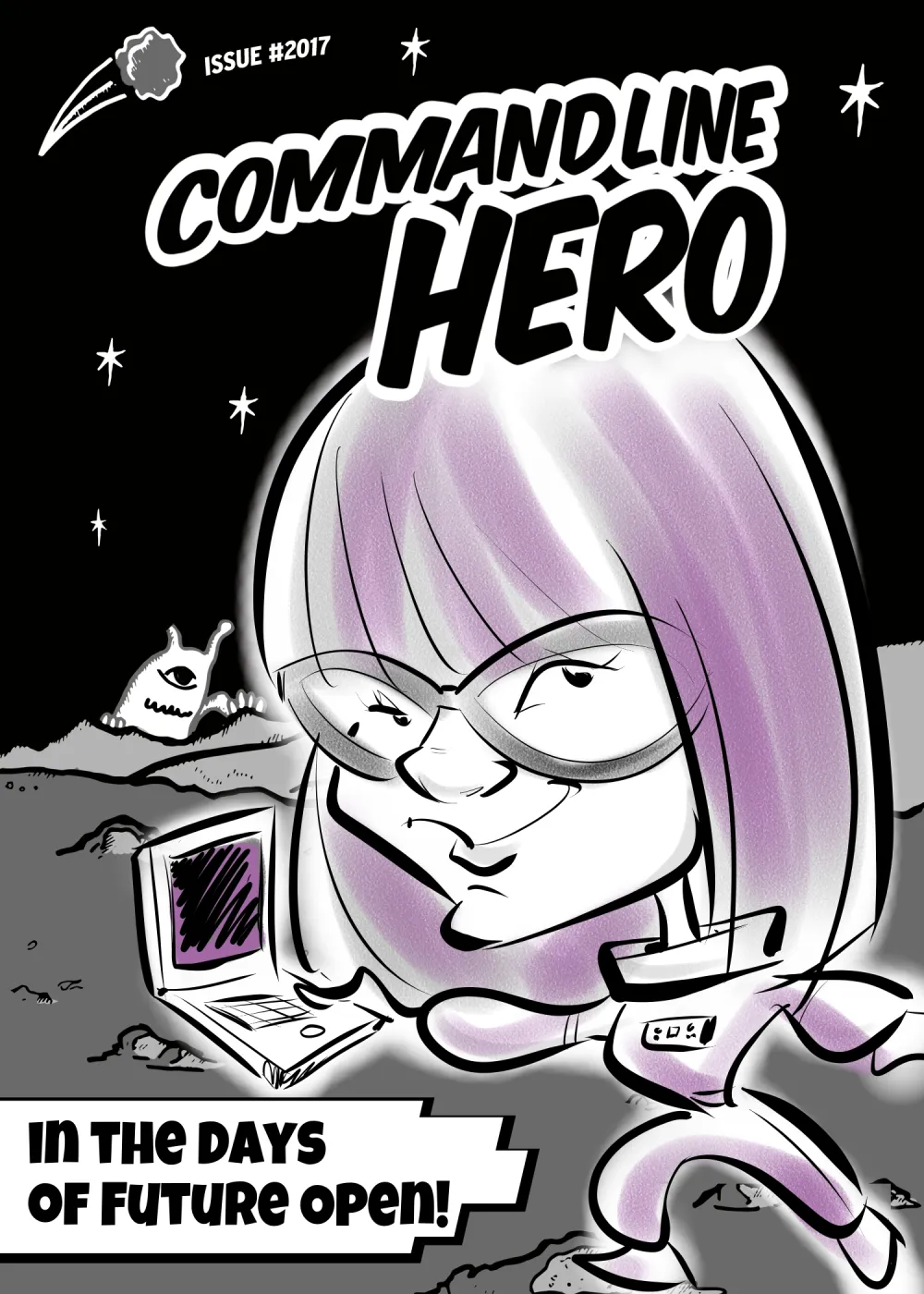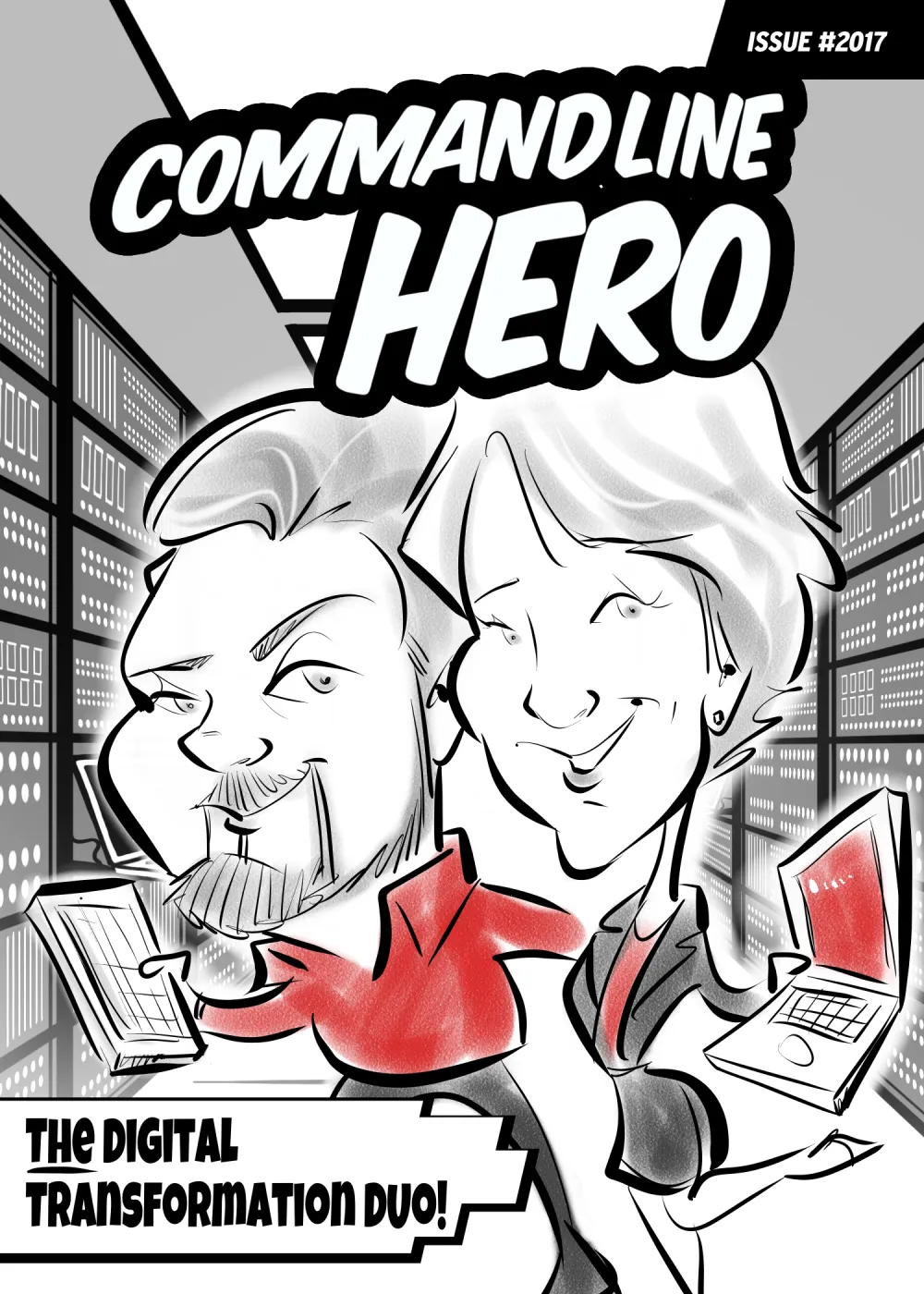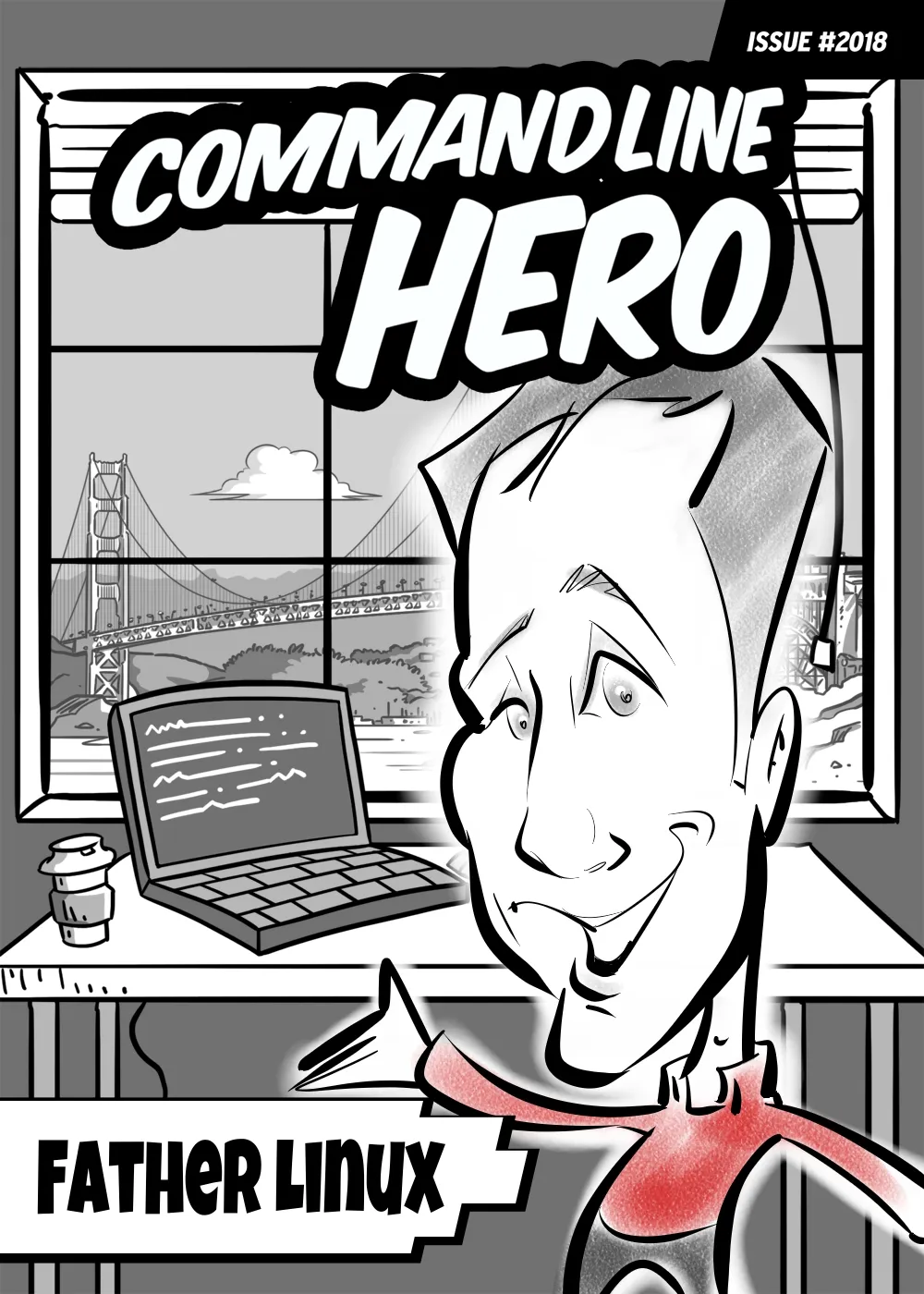Nearly a year ago, Casey Stegman and I wrote a short blog on how we had (big) plans to “change up our marketing approach”... and how it might involve comic books. We also shared our new marketing mantra: Listen. Learn. Build. Well, I have some great news. We listened, we learned, we built—and today I’d like to share
.
Listening
In the latter half of 2017 we took our show on the road. After that fateful encounter in Austin—where we learned that some developers just want the operating system to “get out of the way”—we knew there was an ocean of knowledge and experiences to learn from. From Cape Cod (Flock 2017) to Prague (Open Source Summit Europe 2017) to Las Vegas (AWS re:Invent 2017) to San Francisco (Red Hat Summit 2018), we spoke with literally hundreds of passionate problem solvers. We also had a blast discovering people’s various superpowers and illustrating them as the (command line) heroes / heroines that they are. Some folks you may recognize:
Learning
From these interviews we learned a lot about the challenges that developers, admins, and architects are facing. We learned that while many people are struggling with technical challenges, from embracing containers and re-architecting for hybrid cloud, others are facing equally impressive turbulence as they adopt agile development practices and DevOps workflows. Fun fact here: We also learned a lot about our heroes / heroines “origin stories.” While many got their start via some form of video game (Colossal Cave Adventure anyone?) others were given early access to various bits of hardware (think: “my father brought home this crazy machine”) and began their journey from there.
Building
What did we do with all of this newfound knowledge and information? We built. Specifically, a podcast, called Command Line Heroes, which we debuted earlier this year. It’s a podcast about the people who transform technology from the command line up. We found a successful formula by taking the stories we heard, digging into some additional research, and diving deep into everything from
- The OS wars of the 90s / 00s,
- The agile revolution,
- How DevOps got its start,
- The rise of kubernetes,
- The state of hybrid cloud, and
- The future of open source.
If you’ve been living in a (colossal) cave and have yet to subscribe to the podcast, it’s not too late! Command Line Heroes is available wherever you download / access podcasts today.
We're not done!
More good news? We’re not done. As the fall event season approaches here in North America we plan to get back on the road. In August we’ll be in Boston at DevConf.us and then north of the border for Open Source Summit North America 2018. If you have plans to attend either event, find us—we’d love to hear more about your story.
But if you’re not traveling, here’s another way you can help us listen, learn, and build. We’ve designed a showdown of sorts. In fact, it’s a Command Line Showdown.
As we ramp up towards celebrating System Administrator Appreciation Day on Friday, July 27th, we’re going to pit various commands against each other and allow y’all to help us find “the most useful Linux command.” Quick note: The set of commands we chose was sourced from conversations with you at some of the aforementioned events. Of course, we couldn’t include them all, but if this takes off we can definitely look to a future with more polls, more commands, and bigger showdowns.
So get voting! But also don’t be shy (we know you won’t be) about giving us your feedback.
One final note. We’re hard at work on a season 2 of Command Line Heroes. And if you’d love to influence its direction, but can’t come to any of the events we’re attending, vote in “the showdown” or email us your thoughts (commandlineheroes@redhat.com). If all else fails, subscribe to the podcast and stay tuned for more news soon.
À propos de l'auteur
Plus de résultats similaires
Friday Five — February 6, 2026 | Red Hat
Accelerating VM migration to Red Hat OpenShift Virtualization: Hitachi storage offload delivers faster data movement
Data Security And AI | Compiler
Data Security 101 | Compiler
Parcourir par canal
Automatisation
Les dernières nouveautés en matière d'automatisation informatique pour les technologies, les équipes et les environnements
Intelligence artificielle
Actualité sur les plateformes qui permettent aux clients d'exécuter des charges de travail d'IA sur tout type d'environnement
Cloud hybride ouvert
Découvrez comment créer un avenir flexible grâce au cloud hybride
Sécurité
Les dernières actualités sur la façon dont nous réduisons les risques dans tous les environnements et technologies
Edge computing
Actualité sur les plateformes qui simplifient les opérations en périphérie
Infrastructure
Les dernières nouveautés sur la plateforme Linux d'entreprise leader au monde
Applications
À l’intérieur de nos solutions aux défis d’application les plus difficiles
Virtualisation
L'avenir de la virtualisation d'entreprise pour vos charges de travail sur site ou sur le cloud



